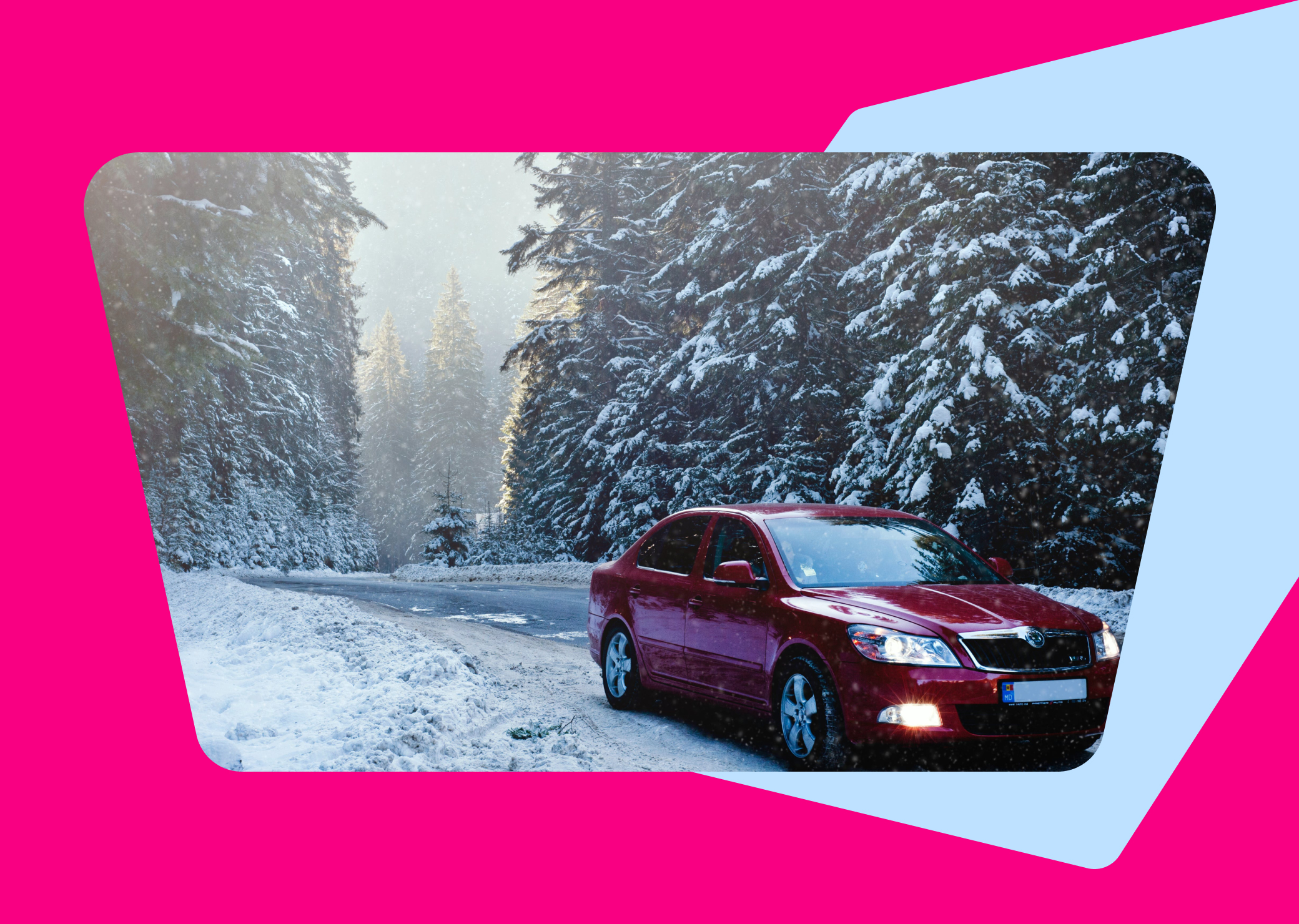- Carmoola
- Blog
- Tips and Advice
- Winter driving myths: Fact or fiction
- 🗞 Tips and Advice
- Last updated: Nov 17, 2023
- 4 Min Read
Winter driving myths: Fact or fiction
Written by

Verified by


See how much you can borrow in 60 seconds
| Representative Example | |
|---|---|
| Loan amount | £10,000 |
| Interest rate | 13.9% APR |
| 54 payments of | £246 |
| Total cost of credit | £3,284 |
| Option to purchase fee | £1 |
| Total payable | £13,285 |
Driving in winter can be challenging. From iced-up windscreens to snowy roads – there are plenty of obstacles to overcome.❄️
There are also plenty of unknown laws associated with winter driving.
From wearing wellies behind the wheel to the implications of winter tyres on your insurance - it’s important to understand the rules of winter driving.
It's illegal to drive in wellies/winter boots
Fiction
The Highway Code states that drivers need to wear clothing and footwear that lets them properly control their vehicle.
So, provided they don’t get in the way of your ability to control the pedals, there’s no reason you can’t wear wellies to drive.
However, police can question your choice of footwear during a stop. If your wellies are covered in mud and it affects your ability to drive, it could be a problem.
The key is to always maintain full control of your car, whatever you're wearing on your feet.
It's okay to pour boiling water on your windscreen to clear ice and frost?
Fiction
Pouring hot, or even lukewarm water, on an icy windscreen is a bad idea. It can lead to cracks or even break the windscreen due to the sudden temperature change.
Is it illegal to drive with ice on your windscreen?
Fact
According to the Highway Code, all windows must be clear of snow and ice before driving. If your windscreen is icy and your view is obstructed, you could receive a £60 fine.
While not explicitly illegal, driving with snow on your car's roof is also risky. If it falls and obstructs your view or the view of other drivers, you could face a large fine.
Is it a legal requirement to have a clear view of the road ahead before you set off?
Fact
Yes, it's legally required to have a clear view of the road before you start driving.
This means ensuring your windscreen, side windows, and mirrors are free from obstructions like ice, snow, or condensation.
It's crucial to be able to see properly for safe driving and to avoid potential hazards on the road.
Driving with a dirty number plate can land you a hefty fine
Fact
Driving with a dirty or obscured number plate is illegal and can result in a fine. It needs to be easy to read so the vehicle can be clearly identified.
Regularly clean your number plate to avoid getting into trouble, especially during winter when mud and dirt can easily cover it.
It’s a legal requirement to carry a winter emergency kit in your car
Fiction
While there's no legal requirement to carry a winter emergency kit in your car, it's highly recommended that you do.
Items like warm clothes, de-icer, jump leads, and a scraper, can be invaluable in cold weather.
Remember, your choices on the road, especially in challenging conditions, not only affect your safety but also that of others.
Learning the truth behind cold weather driving can help you stay on the right side of the law and make winter journeys less daunting.
Stay safe and prepared as you tackle the roads this winter season! 🚗☃️
FAQs about winter driving
Is it illegal to drive with snow on your car in the UK?
Is it illegal to drive with snow on your car in the UK?
There’s no specific law against driving with snow on your car. However, if it falls off and obscures your or another driver's vision, you could be fined for driving without due care.
Should you let air out of tyres in the snow?
Should you let air out of tyres in the snow?
No, you should not let air out of your tyres in the snow. It's important to maintain the recommended tyre pressure for better stability and grip.
What is the AA advice for winter driving?
What is the AA advice for winter driving?
The AA advises to plan your route, check your car before setting off, and drive carefully. You should also leave more space between cars and be prepared with winter essentials like a scraper and de-icer.
See how much you can borrow in 60 seconds
| Representative Example | |
|---|---|
| Loan amount | £10,000 |
| Interest rate | 13.9% APR |
| 54 payments of | £246 |
| Total cost of credit | £3,284 |
| Option to purchase fee | £1 |
| Total payable | £13,285 |
Related articles
Can you get car finance without a driving licence?
Yes, some lenders offer car finance without a driving licence, but Carmoola requires a full UK driving licence to complete an...
Dealerships still dominate - but must adapt to shifting buyer expectations, report shows
New research* from Carmoola, the direct-to-consumer car finance lender, reveals a major shift in how UK consumers buy and finance...
PCP vs HP car finance: what's the difference and which is better?
When you're choosing between a PCP or HP car finance, the decision often depends on whether you prefer lower monthly payments or...

.webp?width=832&height=592&name=customer-support%20(1).webp)












.webp?width=400&height=285&name=online-shoppers-with-dog%20(1).webp)


.jpg?width=500&height=356&name=Vintage%20car%20going%20to%20an%20old%20town-1%20(1).jpg)





